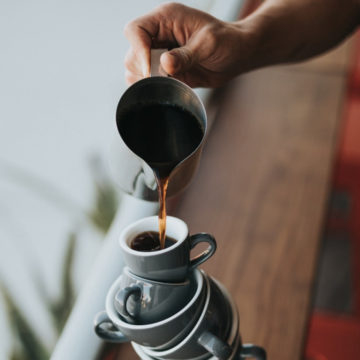Almost 21 million Americans have at least one addiction, yet only 10% of them receive treatment. Addiction also disproportionately affects young people – Americans between the ages of 18 and 25 are more likely to use addictive drugs.
May is mental health awareness month, and addiction is deeply tied to our mental health. People who experience a mental illness are twice as likely to have substance use issues compared to the general population, and people with substance use issues are three times more likely to have a mental illness.
Let’s discuss definitions.
What defines an addiction? What’s the difference between an addiction and a dependency? Are my hobbies addictions? Let’s take a look at some of the language we all use.
Addiction
The clinical definition of “addiction” is when a person’s life – whether it’s their relationships with friends or family, their ability to perform their job, or something else – has been knocked off-kilter by a compulsion to perform a behaviour. The definition originally applied only to substance use, but today, it covers a lot more: “a psychological condition that involves repeated powerful motivation to engage in a behaviour that’s learnt through experience, and that has either actual or potential harmful consequences.”
Hobbies
Your hobbies are not an addiction if you spend a lot of time on them but they don’t negatively affect your life, work, personal relationships, or health.
You have a dependency when you use a substance as a conditioned response to an event or feeling.
There are different types of addictions:
Here are some common ones:
- Substance: drug and alcohol
- Gambling
- Social media
- Pornography
- Gaming
So… what causes addictions?
Many factors have shaped the rise of addiction in our society.
- Our modern environment is stuffed with craving-inducing stimuli – like television, food, entertainment, and/or illicit substances that can give us the sensation of pleasure or satisfaction.
- Our dosage has increased – we’re consuming more of this stimuli than ever.
- It’s easier than ever to access all these things.
Addiction has an impact on mental health.
Addiction is deeply intertwined with mental health and it’s important to understand how they’re related. For example, suicide rates, along with the likelihood of substance misuse, are higher among compulsive gamblers. Substance misuse can affect people’s personal relationships which in turn can negatively affect their mental health. Many cases of intimate partner violence are tied to substance misuse and addiction. Overuse of social media can bring on feelings of loneliness, low self-esteem, symptoms associated with depression, and a reduced sense of social connectedness.
There is help.
If you or a loved one needs help for an addiction or is looking for addictions treatment, there are resources and centers to support you.
If you’re in Canada:
It you’re in the US:
If you have questions about addiction or simply want to talk with a health professional about addiction or mental health, chat with a member of our Health Concierge team.






